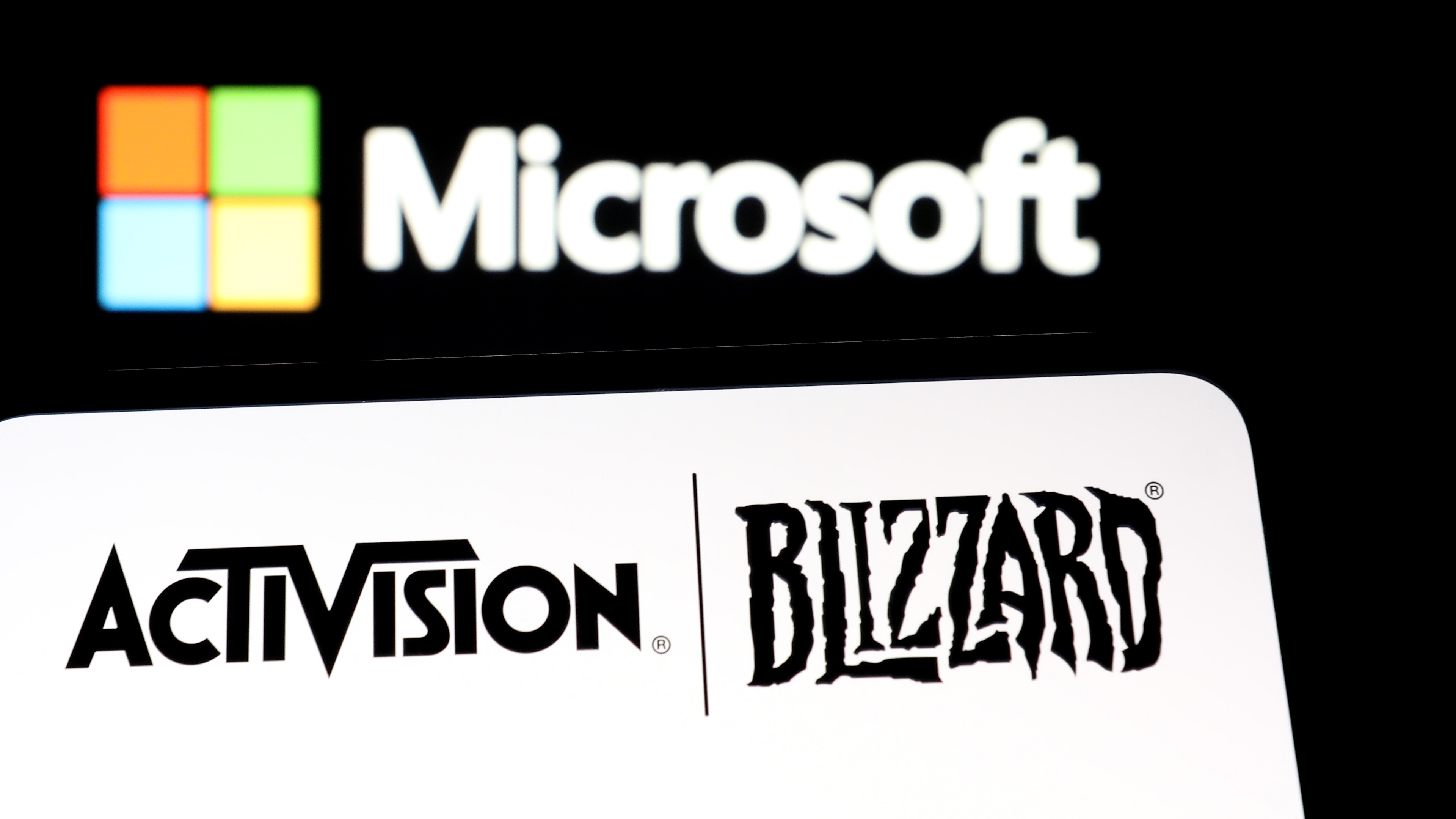FTC To Challenge Ruling On Microsoft-Activision Deal

Table of Contents
The FTC's Arguments Against the Merger
The FTC's primary argument against the Microsoft-Activision Blizzard merger centers on the assertion that it would create an anti-competitive environment, leading to market dominance and ultimately harming consumers. Their concerns revolve around several key points:
-
Anti-competitive Practices: The FTC argues the merger would allow Microsoft to engage in anti-competitive practices, leveraging its market power to stifle competition from other gaming companies.
-
Call of Duty Exclusivity: A major point of contention is the potential for Microsoft to make popular Activision Blizzard titles, especially Call of Duty, exclusive to its Xbox platform. This would significantly disadvantage competitors like Sony's PlayStation, potentially driving players towards the Xbox ecosystem. This exclusivity would likely impact the competitive landscape, and the FTC cites this as a major breach of fair competition.
-
Monopoly Power: The FTC alleges that this merger would grant Microsoft significant monopoly power within the gaming industry, limiting consumer choice and potentially leading to higher prices for games and related services. Their market share analysis supports this claim, showing a significant increase in Microsoft's control post-merger.
-
Consumer Harm: Ultimately, the FTC's case rests on the argument that the merger will cause substantial harm to consumers by reducing competition, limiting game availability, and potentially increasing prices. This consumer harm is the core of their antitrust challenge.
The FTC's detailed complaint includes specific examples of Microsoft's past behavior and market analysis to support their claims of potential anti-competitive practices. They've meticulously outlined how Microsoft's increased market share, coupled with the exclusivity of key titles, would negatively impact the gaming industry's competitive dynamics and consumer choice. The depth of their analysis demonstrates the seriousness of their concerns.
Microsoft's Defense and Counterarguments
Microsoft has vigorously defended the merger, arguing that it will ultimately benefit consumers and foster innovation within the gaming industry. Their counterarguments focus on several key points:
-
Competitive Landscape: Microsoft contends that the gaming market is highly competitive, with numerous strong players. They argue that the merger will not significantly alter this landscape and will instead spur innovation.
-
Call of Duty on Other Platforms: Crucially, Microsoft has pledged to keep Call of Duty available on PlayStation and other platforms, even signing long-term agreements with Sony to ensure continued access. This commitment seeks to directly address the FTC's concerns about exclusivity.
-
Cloud Gaming and Innovation: Microsoft emphasizes the growth potential of cloud gaming and its commitment to a multi-platform approach. They argue that the merger will accelerate innovation in this space, benefiting consumers through improved accessibility and wider game availability.
-
Consumer Benefits: Their central argument is that the merger will bring numerous benefits to consumers, including expanded game access, enhanced features, and potentially lower prices due to economies of scale. Microsoft highlights the advantages of combining their resources and expertise with Activision Blizzard's extensive game portfolio.
Microsoft's defense includes detailed proposals and concessions aimed at addressing the FTC's concerns. They've provided extensive documentation outlining their plans to maintain a competitive market and ensure fair access to their games across various platforms.
The Potential Implications and Next Steps
The FTC's challenge has significant implications and sets the stage for a potentially lengthy legal battle. Several factors influence the future of the merger:
-
Legal Battle and Court Hearing: The FTC's challenge will likely lead to a protracted legal battle, potentially involving multiple court hearings and appeals. The outcome could take months, even years, to resolve.
-
Regulatory Hurdles: The FTC's actions aren't isolated. Regulatory bodies worldwide are scrutinizing the merger, adding another layer of complexity and uncertainty. International regulatory approval is crucial for the deal to proceed.
-
Future of Gaming: The outcome will significantly shape the future of the gaming industry, affecting competition, pricing, and the availability of popular titles across different platforms. The precedent set by this case will also impact future mergers and acquisitions within the tech sector.
-
Potential Scenarios: Several outcomes are possible: the FTC could prevail, blocking the merger; Microsoft could win, allowing the acquisition to proceed; or a negotiated settlement could be reached, resulting in concessions from Microsoft to address regulatory concerns.
The timeline for resolving this legal challenge is uncertain, but the potential impact on the gaming industry and beyond is undeniable. The intensity of the legal battle will determine the future of this significant merger.
Conclusion
The FTC's challenge to the Microsoft-Activision Blizzard merger marks a significant turning point in the ongoing antitrust debate. The arguments presented by both sides highlight the complexities of regulating mergers in the rapidly evolving tech landscape, particularly within the gaming industry. The outcome will significantly impact the competitive balance and future innovation within the gaming market. Understanding the implications of this landmark case is crucial for all stakeholders.
Call to Action: Stay informed about this landmark case as the legal battle unfolds. Follow our updates on the FTC's challenge to the Microsoft-Activision deal and learn more about the implications for the future of gaming and the antitrust landscape. Understanding the intricacies of the FTC's challenge to this significant merger is crucial for anyone interested in the future of the gaming industry.

Featured Posts
-
 Resistance Grows Car Dealers Challenge Ev Sales Quotas
Apr 28, 2025
Resistance Grows Car Dealers Challenge Ev Sales Quotas
Apr 28, 2025 -
 Will Espns Red Sox 2025 Prediction Come True
Apr 28, 2025
Will Espns Red Sox 2025 Prediction Come True
Apr 28, 2025 -
 Rent Increase Slowdown In Metro Vancouver Analyzing The Housing Market Trends
Apr 28, 2025
Rent Increase Slowdown In Metro Vancouver Analyzing The Housing Market Trends
Apr 28, 2025 -
 Monstrous Beauty Feminist Readings Of Chinoiserie In The Metropolitan Museum Of Art Exhibition
Apr 28, 2025
Monstrous Beauty Feminist Readings Of Chinoiserie In The Metropolitan Museum Of Art Exhibition
Apr 28, 2025 -
 How To Spot The Signs Of A Silent Divorce
Apr 28, 2025
How To Spot The Signs Of A Silent Divorce
Apr 28, 2025
